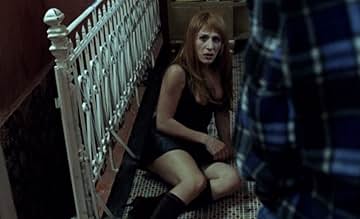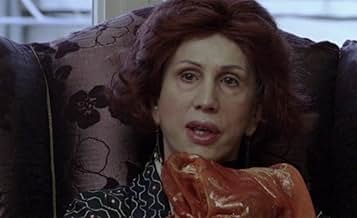This is the story of Giorgos, an ex-convict who has spent more than fifteen years in prison, sentenced for a crime of honor, and Strella, a transsexual call girl. The opening scene, as Giorgos kisses good-bye his cellmate, is when the viewer is prepared for macho-looking Giorgos' sexual orientations or –if you want- his upcoming "tolerance" to the fact that Strella is not a common girl. Giorgos wouldn't possibly react the way Fergus reacted in Neil Jordan's "Crying Game". As Giorgos is set free to "live his myth" in the dirty city, walking among the human and the urban garbage, one can smell the urine in the narrow mean streets, downtown Athens. Soon, as Giorgos attempts to find more about the whereabouts of his long lost son, one suspects that the film is intended to be a modern version of a Greek tragedy, except it will not be, because Strella knows better! Fortunately, "deus ex machina" will not be required. Humans ought to deal with their issues by themselves, this time. The supporting characters are never becoming grotesque despite the fact that they are queer and that Death is flirting with them throughout the film. Even Strella's impersonation of Maria Callas in its falseness has a bizarre dignity and proves to be a successful tightrope walking mainly –in my opinion- because it has nothing in common and at any time with any of the Almodόvar's transvestite characters. All in all, "Strella" is a worth seeing film and one of those every so often moments the Greek cinematography surprises pleasantly.






























